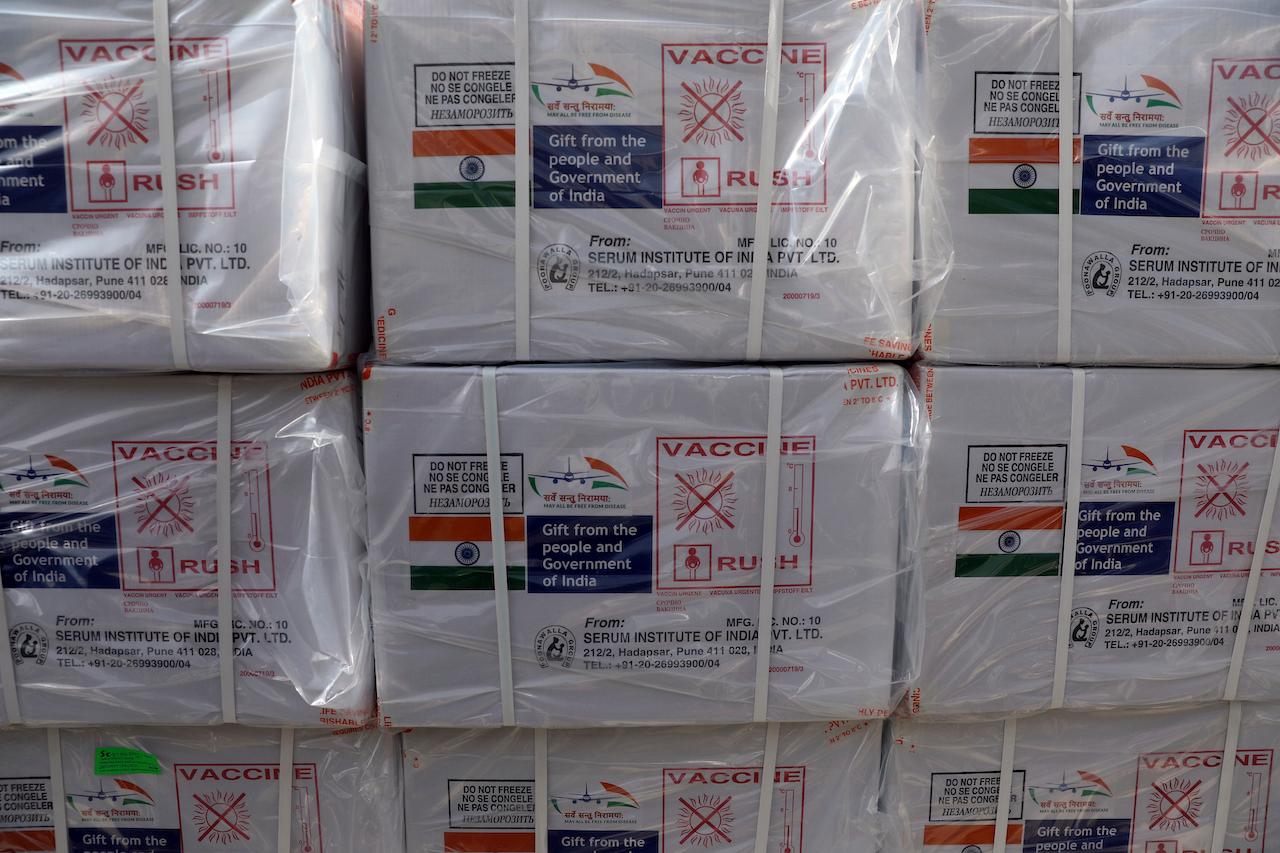Covax delivers first vaccine shipment in ‘momentous occasion’
Covax hopes to deliver more than two billion doses in less than a year to ensure 92 poorer countries will receive access to Covid-19 vaccines.
Just In
Ghana has become the first country to receive coronavirus vaccines through the Covax vaccine-sharing initiative.
The World Health Organization (WHO) programme aims to ensure that vaccines are shared fairly among all nations by richer countries agreeing to help finance vaccine access for poorer nations.
Many rich nations, who began their own vaccination programmes months ago, have faced criticism for buying or ordering more vaccines than they need.
600,000 doses of the AstraZeneca and Oxford University vaccine were delivered to Ghana’s capital Accra on Wednesday.
The West African country has recorded nearly 90,000 cases of coronavirus and nearly 600 deaths since the pandemic began but these numbers are believed to fall short of the actual toll because of low levels of testing.
In a joint statement, WHO and the United Nations children’s fund (Unicef) said the delivery was a “momentous occasion”.
“The arrival of the Covid-19 vaccines in Ghana is critical in bringing the pandemic to an end,” they said. “The shipment represents part of the first wave of Covid vaccines headed to low and middle-income countries.”
Though the vaccines are not generally intended for children, Unicef is involved in the scheme because of its expertise in procurement and the logistics of vaccine delivery.
Covax hopes to deliver more than two billion doses in less than a year to ensure 92 poorer countries will receive access to vaccines at the same time as 98 wealthier countries.
It aims to reach up to 20% of the populations of poorer countries, at no cost to their governments.
Most African countries are intended recipients of Covax, but a number of them like Senegal have been making provisions for vaccines outside the initiative.
The scheme has so far raised US$6 billion, but says it needs at least another US$2 billion to meet its target for 2021.
Covax has faced some criticism for not moving quickly enough. One WHO board member, Austria’s Dr Clemens Martin Auer, said it had been slow to secure vaccine deals and deliver doses to countries.
The WHO and Unicef joint statement on Wednesday said the shipment to Ghana represented “the beginning of what should be the largest vaccine procurement and supply operation in history”.
Subscribe to our newsletter
To be updated with all the latest news and analyses daily.
